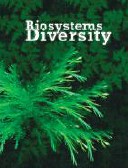Antimicrobial and therapeutic effect of probiotics in cases of experimental purulent wounds
Antimicrobial and therapeutic effect of probiotics in cases of experimental purulent wounds
Author(s): L. P. Babenko, N. O. Tymoshok, L. A. Safronova, O. M. Demchenko, G. M. Zaitseva, L.M. Lazarenko, M.J. SpivakSubject(s): Health and medicine and law
Published by: Дніпропетровський національний університет імені Олеся Гончара
Keywords: probiotic bacteria; preparation; bacilli; skin; infection; rabbits;
Summary/Abstract: Probiotics based on bacteria of the genus Bacillus with a multifactorial mechanism of action are considered as a possible alternative to antibiotics in the treatment of purulent wounds. The aim of the study was to determine the antimicrobial and therapeutic effect of the Arederma probiotic preparation containing probiotic strains of the genus Bacillus in an experimental model of a purulent wound in animals. The antimicrobial efficacy of the probiotic against test strains and clinical isolates of pathogenic and opportunistic microorganisms was studied using the method of delayed antagonism. Staphylococcus aureus ATCC 6538 and Streptococcus pyogenes K-7 were used to model a purulent wound. From the surface of the wounds, bacteria of Staphylococcus, Streptococcus, Enterobacteriaceae, Pseudomonas genera and Enterobacteriaceae family were sown on appropriate selective media for the cultivation and enumeration of different groups of microorganisms by generally accepted microbiological research methods. The formation of a purulent wound in rabbits caused by mechanical skin damage and subsequent double infection with Staphylococcus aureus ATCC 6538 and Streptococcus pyogenes K-7 strains was accompanied with a pronounced inflammatory process, necrosis, the formation of purulent exudate and general intoxication. Representatives of the genera Staphylococcus and Streptococcus, microscopic fungi and, to a lesser extent, members of the family Enterobacteriaceae and Pseudomonas were found on the surface of purulent wounds, which confirmed the development of the infectious-inflammatory process. Treatment of purulent wounds with a suspension of probiotic preparation once a day for 4 days led to their faster healing (gradual attenuation of the inflammatory process, reduction of edema and discharge, as well as their disappearance) compared with untreated purulent wounds (control). Representatives of the Staphylococcus and Streptococcus genera, as well as microscopic fungi, presented in purulent wounds treated with probiotic preparation in much smaller numbers than in the control, and bacteria of the Pseudomonas genus and the Enterobacteriaceae family were not detected at all.
Journal: Biosystems Diversity
- Issue Year: 30/2022
- Issue No: 1
- Page Range: 29-37
- Page Count: 9
- Language: English

